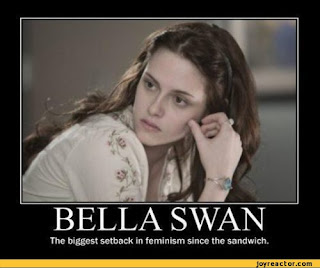Last Monday, when I wrote about Banned Books Week I provided a link to a recent news story about García's book being removed from the High School Curriculum in Sierra Vista, Arizona. The removal was spurred by the complaint of one parent, who objected to one page in the book that describes a graphic sex scene. Since the story broke just in time for Banned Books Week, and at the same time my elementary Spanish class happened to have a short reading about CristinaGarcía  in our textbook it seemed the time was ripe to finally read the book myself. Taken out of context the scene in question may seem like pornography, but I read the whole work (something many censors do not do) and found the passage to be an essential part of the story, rather than simply a gratuitous sex scene. The passage in question can be read in this story from the Huffington Post.
One review I read of this work compared it to Gabriel García Márquez's One Hundred Years of Solitude which I read many years ago, back in my college days. Something I remembered about One Hundred Years was that there was a family tree at the beginning of the book, which I constantly had to turn back to in order to keep the characters straight. Dreaming also had such a chart, but since I was reading this on my iPad, I was never able to find it again once I started in reading the book. This left me to rely on my memory to keep the three generations of characters sorted. Each time I put the book down I would have to re-create what I remembered about the relationships between the characters. Score one for old-fashioned print books.
This work tells the story of Pilar, a young woman who came to the United States from Cuba with her parents as a young child. As a young woman she returns to Cuba for the first time in order to explore her roots. Set in the 1960s and 1970s the tumultuous politics of both countries at this time in history creates a backdrop to the story that illustrates generation gaps on a variety of levels.
Libraries are mentioned a few times in this book. Pilar, while tripping on some sort of herbal bath says
In the library nothing made sense. The flourescent lights transmit conversations from passing cars on Broadway. Someone's ordering a bucket of chicken wings on 103rd Street. The chairman of the linguistics department is fucking a graduate student named Betsy. Ghandi was a carnivore. He came of age in Samoa. He traversed a subcontinent in blue suede shoes. Maybe this is the truth.
Pilar, who attends Barnard College does specifically say she used the library there on at least one occasion. She also mentions someone playing music on the steps of Columbia University's Low Library. As we know from my Fear of Flying post, Low Library no longer functions as the library.
Well, a funny thing just happened. Since I borrowed this e-book from a library my access to it "expired" right in the middle of my blogging, so that I cannot easily find the other two pages I marked. I did discover that I can go through the book page by page and find the markers, a bit more inconvenient, but worth it of course. I would have gladly paid the 10 cent fine in order to have kept this book one more day. In fact, if I had borrowed an old-fashioned print book I would have been able to keep it all day today, returned it this evening, finished my blog post, and still not have had to pay the dime. Score two for old-fashioned print books.
So, back to the libraries...
We learn that Pilar's mother Lourdes uses her college library to check out books for other members of her family, and my final bookmark did not concern libraries at all, but rather a mark of my realization the bezoar was not something simply made up by J.K. Rowling for the "Harry Potter" books, but rather a real thing, which was at one time was believed to be an antidote to poison. Well who knew?
Update Oct. 10, 2013
The Sierra Vista School Committee has reconsidered. Dreaming in Cuban will remain in the library and classrooms.











